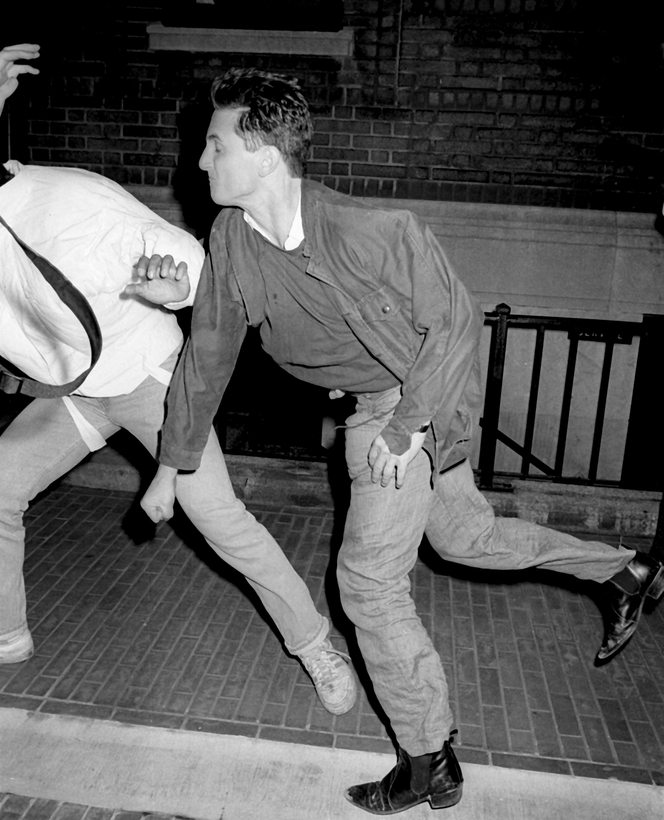Issuing a gruff dissent on Vladimir Nabokov’s Lolita, Kingsley Amis cast a scowl at the baroque exhibitionism of Nabokov’s style, singling out the garish description of Charlotte Humbert’s hit-by-car accident, which, wrote Nabokov, left “the top of her head a porridge of bone, brains, bronze hair and blood.” Amis: “That’s the boy, Humbert/Nabokov: alliterative to the last.” In the first chapter of actor-director Sean Penn’s novel Bob Honey Sings Jimmy Crack Corn, the follow-up to last year’s Bob Honey Who Just Do Stuff, a mangled body yields a goulash of “blood, brain, and brutal bits,” and one can only sigh, That’s our Penn, alas: alliterative from the start.
And he never stops. Alliteration runs amuck: “Head in habit and honing Hebrews,” “Mockery is midget-minded misunderstanding,” “the pencil piñata of a person bleeds the confetti of plagiarized pop paeans,” “the parental pitfalls plaguing so many of his playmates,” “her whiskey-wee parts the wings of her wizard’s sleeve-thing,” and this doozy, “gangrenous dormant derma of human disposition.” For troubadour effect, Penn occasionally renders sentences as rhymed couplets—“Gutters stream, puddles plop deep, but life goes on after the prior night sky’s worrisome weep”—but then he’s back to his favorite tic, alliterating to beat the band, the “tappity-tap of the pileated pecker plundering pulp with pride in its plumage.” No matter how hard you try to tune it out, you can’t read this tale without being subjected to the unstoppable tappity-tap of Penn’s pileated pecker.
“Gutters stream, puddles plop deep, but life goes on after the prior night sky’s worrisome weep.”
Bob Honey Sings Jimmy Crack Corn sounds like the title of an old children’s book whose pages have browned at the edges or of an obscure country-music album orphaned at a yard sale, but there’s nothing folksy and darling about this joint. It’s a sustained provocation, intent on serious, cartoonish mayhem. Characterization is nil, likewise plausibility; it’s all about pinball action and running commentary.
Like its predecessor, which found Penn’s alter-ego antihero Bob Honey bashing his way with a mallet through a demolition derby of adventures, the novel is an antic spree, the picaresque smash and grab of the last free spirit in a country that’s gone to dung. This time Honey’s mallet takes him to Washington, D.C., where it smites the White House with the force of Thor’s hammer, plunging the White House into a fecal sinkhole upon which “billions of blue tail flies” converge and feast. (Blue-tail flies are the novel’s spirit insect.) The objects of Honey’s—Penn’s—wrath go unnamed, but it doesn’t take a decoder ring to identify Donald Trump (that “flim-flamming finger-fucker”), Sarah Huckabee Sanders (“queen of the collusion klutzes’ clan”), and Rudy Giuliani, who’s compared to a maxi pad absorbing “the ever-flowing dark blood of his don’s deeds.”
Despite such bloated targets, the novel can’t be pegged as a political satire, which nobody wants anyway, not now. (It’s too late for that.) It’s primarily a performance piece, a pirate yell. In its nihilistic gusto, roughneck attitude, crackling paranoia, phantasmic fugues (an acid trip that features bugle-playing bugs marching along the marble-bathroom grout—freaky!), and excremental eruptions, the novel is a throwback to the fiction and nonfiction of Thomas Pynchon, Hunter S. Thompson, Terry Southern (The Magic Christian), Edward Abbey (The Monkey Wrench Gang), and Penn’s beer-suds hero Charles Bukowski, which means that its sensibility and gonzo mode of attack are about 50 years out of fashion. One suspects that Penn takes curmudgeonly pride in being out of fashion, of keeping faith with the gunslinger tradition, refusing to go down without a fight. There’s also a self-amused bluster in the two Bob Honey novels, as if Penn is aware that he’s blowing smoke up the reader’s ass, having blown considerable amounts up his own.
Flashes of Elegiac Beauty
Penn does have talent to flourish when inspiration strikes. The writing shows flashes of elegiac beauty. Honey’s escape on foot from the capital, for example, is nicely etched: “Branches, brambles, then bridge, road, a passing bait truck, until a tiny town, a backyard carousel of painted ponies, its rusted bearings creaking with the turning of childhood’s ghost.” And there’s a scene where Bob is confronted by an Amazonian Instagram queen named Anasyrma, “the symbol of social technology’s most salacious self-indulgence.” More of an analogue guy, “Bob shoves Anasyrma and her selfie stick from the sill. Throughout her fall, she captures her final moments, pressing a group send in the millisecond before her body’s ultimate impact on pavement.” One can almost visualize it in slow motion, the lyrical backward dive in a Brian De Palma death ballet. But such isolated bits make for slim pickings in a novel that’s otherwise heavy-going and overwrought.
Given the shellacking that Penn’s first novel received (“Words are not just misused, they are misplaced, to the point that Penn’s prose is more reminiscent of bot than man,” Sian Cain, The Guardian), why would he hoist another over the transom? Masochism? Perversity? Sheer orneriness? Squirrels in the attic? In the acknowledgments at the end he offers thanks to the critics of Bob Honey Who Just Do Stuff (“the few who understood it, and the many who never read it”), claiming, “Without you, I may have shelved my typewriter for good.” It’s too late to shelve the typewriter now. Another crime has already been committed on it. It belongs in protective custody before Penn can rest his fingers on the innocent keys and strike again.
James Wolcott is a columnist for AIR MAIL


